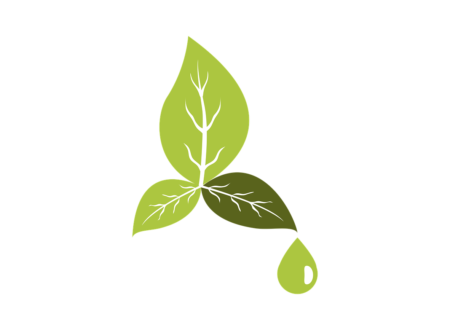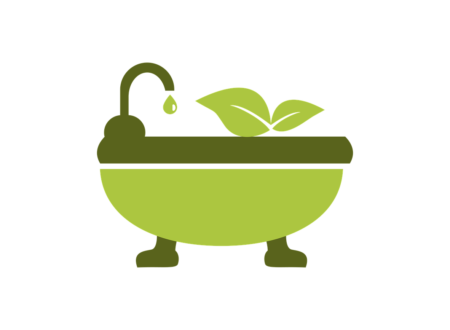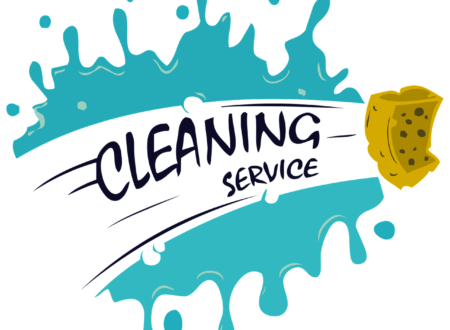Cleaning is a vital aspect of our lives, and two distinct realms dominate this domain – domestic and commercial cleaning. While both share the common goal of maintaining cleanliness, they differ significantly in approaches, challenges, and techniques.
Domestic cleaning primarily focuses on maintaining cleanliness in residential properties, addressing the needs of individual homes and personalized preferences. On the other hand, commercial cleaning encompasses larger-scale tasks in various business sectors, such as offices, retail establishments, and healthcare facilities, requiring specialized equipment and tailored approaches to meet industry-specific challenges.
In this comprehensive guide, we’ll explore the differences between domestic and commercial cleaning, uncovering essential insights to achieve optimal cleanliness in every setting.
- Domestic Cleaning: The Art of Caring for the Home
- Commercial Cleaning: Enhancing Workplace Hygiene
- Cleaning Methods and Techniques
- Cleaning Practices: Workforce and Timelines
- Skills and Training Required
- Health and Safety Considerations
- Quality Control: Expectations and Assessments
- Cost Analysis: Residential vs. Commercial
- Environmental Impact: Sustainability in Cleaning
- Challenges Faced in the Cleaning Industry
- Future Trends in Cleaning
- Summary: Embracing the Differences for Cleaner Spaces
- Get Our Commercial Cleaning Services
Domestic Cleaning: The Art of Caring for the Home
- Defining Domestic Cleaning
Domestic cleaning encompasses the cleaning and maintenance of private residences, such as houses, apartments, and condos.
This type of cleaning is typically performed by homeowners or hired domestic cleaners.
- Scope of Work
- Daily Tasks: Ensuring a Tidy Home + Domestic cleaning involves daily tasks that aim to maintain a tidy living environment. These include sweeping, mopping, and dusting. + Regularly decluttering and organizing rooms is also part of daily domestic cleaning routines.
- Weekly Duties: Deep Cleaning and Maintenance
+ In addition to daily tasks, domestic cleaning requires weekly deep cleaning efforts. This includes activities such as vacuuming, cleaning windows, and sanitizing bathrooms and kitchens.
+ Maintenance tasks like changing bed linens and doing laundry contribute to the overall cleanliness of the home.
- Cleaning Products and Tools 1. Common Household Cleaners + Domestic cleaning typically involves the use of readily available household cleaners such as all-purpose sprays, window cleaners, and surface disinfectants. + With a focus on efficacy and affordability, these products are designed for everyday household use.
- Equipment Used for Domestic Cleaning
+ Domestic cleaning activities can be performed using basic cleaning tools and equipment like brooms, mops, vacuum cleaners, and microfiber cloths.
+ These tools are tailored to handle various tasks in different areas of the home.
Commercial Cleaning: Enhancing Workplace Hygiene
Understanding Commercial Cleaning
Commercial cleaning refers to the cleaning services provided to commercial and corporate establishments.
It involves the maintenance of various types of commercial spaces, such as offices, restaurants, retail stores, and healthcare facilities.
Types of Commercial Spaces & Their Unique Cleaning Needs
Offices and Corporate Buildings
Offices require routine cleaning to ensure a neat and organized workspace. This includes dusting desks, disinfecting common areas, and emptying trash bins.
More specialized tasks may involve cleaning computer screens and keyboards, as well as sanitizing telephones.
Restaurants and Food Establishments
Food establishments necessitate strict cleaning protocols due to potential health hazards. Cleaning schedules must comply with local health regulations and guidelines.
Regular deep cleaning of kitchen equipment, grease removal, and sanitization of dining areas are crucial to maintain a safe and hygienic environment.
Retail Stores and Shopping Malls
Retail spaces require frequent cleaning to create a pleasant shopping experience. This involves floor maintenance, display cleaning, and sanitization of changing rooms.
Regular dusting and disinfection of surfaces, including door handles and shopping carts, are essential in preventing the spread of germs.
Healthcare Facilities
Cleaning in healthcare facilities is of utmost importance to prevent the transmission of infections. Medical-grade disinfectants and specialized cleaning protocols must be followed.
Areas requiring particular attention include patient rooms, waiting areas, and high-touch surfaces like doorknobs and handrails.
Cleaning Methods and Techniques
- Domestic Cleaning Approaches
Traditional Cleaning Methods
Traditional domestic cleaning has often involved the use of chemical-based cleaning agents. These products offer strong cleaning power but may have environmental and health implications.
Manual cleaning techniques like scrubbing, wiping, and dusting have been commonly employed.
Modern Cleaning Trends and Eco-Friendly Alternatives
With the growing focus on sustainability and eco-consciousness, modern domestic cleaning trends include the utilization of environmentally friendly cleaning products.
Microfiber cleaning cloths, steam cleaning, and natural cleaning agents like vinegar and baking soda have gained popularity due to their effectiveness and reduced environmental impact.
- Specialized Commercial Cleaning Techniques
Surface Cleaning and Disinfection Protocols
Commercial cleaning services implement comprehensive surface cleaning and disinfection techniques to maintain cleanliness and prevent the spread of infections.
These protocols often involve the use of industry-grade disinfectants, electrostatic sprayers, and color-coded cleaning systems to avoid cross-contamination.
Carpet and Upholstery Cleaning
Commercial cleaning companies are equipped to handle specialized tasks like carpet and upholstery cleaning. They utilize professional-grade equipment such as steam cleaners and extractors to ensure thorough cleaning and stain removal.
High-Pressure Washing and Window Cleaning
External building cleaning, including high-pressure washing and window cleaning, is necessary for commercial spaces to maintain their appearance and structural integrity.
Trained professionals utilize specialized equipment and techniques to safely and effectively clean exterior surfaces, leaving them spotless and preserved.
Cleaning Practices: Workforce and Timelines
- Domestic Cleaning: Self or Outsourcing?
Domestic cleaning can be either performed by the homeowners themselves or outsourced to professional domestic cleaning services.
Factors such as time availability, personal preferences, and the size of the home influence the decision to outsource cleaning duties.
Time Allocation for Domestic Cleaning
The time required for domestic cleaning varies depending on the size of the living space and the depth of cleaning required. On average, homeowners spend several hours per week on domestic cleaning tasks.
- Commercial Cleaning Companies
Commercial cleaning services are often hired to ensure consistent cleanliness in commercial spaces. They provide comprehensive cleaning solutions tailored to the specific needs of each establishment.
- Efficient Scheduling for Commercial Cleaning
Commercial cleaning companies develop customized cleaning schedules for their clients, taking into account the type of establishment, foot traffic, and specific cleaning requirements.
Regular cleaning visits can occur during or after business hours, ensuring minimal disruption to daily operations while maintaining cleanliness.
Skills and Training Required
- Professional Attributes of Domestic Cleaners
Domestic cleaners should possess various skills, including attention to detail, time management, and the ability to work independently.
Good communication and customer service skills are also important, as domestic cleaners often interact with homeowners and need to understand their preferences.
- Certifications and Education for Commercial Cleaners
Commercial cleaners often undergo specialized training to gain proficiency in commercial cleaning protocols and techniques.
Health and Safety Considerations
- Domestic Cleaning Hazards
Chemical Exposure
The use of household cleaning products may expose domestic cleaners to potentially harmful chemicals if not used properly.
Using protective equipment such as gloves and masks can mitigate the risk of chemical exposure.
Physical Strains
Repetitive movements and strenuous activities involved in domestic cleaning can lead to physical strains or injuries.
Adopting proper ergonomic techniques, taking breaks, and using appropriate cleaning tools can help minimize physical strains.
- Occupational Health Concerns in Commercial Cleaning
Hazardous Substances and MSDS Compliance
Commercial cleaning often involves the use of stronger cleaning agents and harsh chemicals, posing potential health risks to cleaning professionals.
Compliance with Material Safety Data Sheets (MSDS) guidelines ensures the safe handling and use of hazardous substances.
Controlling the Spread of Infections
Cleaning professionals in healthcare and other high-risk environments face potential exposure to infectious agents.
Following proper infection control protocols, including the use of personal protective equipment and regular hand hygiene, is crucial to minimize the spread of infections.
Quality Control: Expectations and Assessments
- Evaluating Domestic Cleaning Standards
Personal Preferences and Satisfaction
When it comes to domestic cleaning, personal preferences and satisfaction play a significant role in evaluating the cleaning standards.
Communication between the homeowner and domestic cleaner helps establish mutual expectations and ensures satisfaction with the cleaning results.
Establishing Consistency
Consistency in domestic cleaning can be achieved through clearly defined cleaning routines and checklist items.
Establishing a cleaning schedule and maintaining open lines of communication help ensure consistent cleaning standards are met.
- Quality Monitoring in Commercial Cleaning
Setting Baseline Standards
For commercial cleaning, baseline standards are set based on industry guidelines and client expectations.
Detailed cleaning checklists and protocols are created to ensure thorough cleaning and meet the established standards.
Inspection and Auditing Procedures
Commercial cleaning companies conduct regular inspections and audits to assess the quality of their cleaning services.
These procedures may involve physical inspections by supervisors, customer feedback assessments, or the use of technology such as sensors or QR codes to monitor cleaning performance.
Cost Analysis: Residential vs. Commercial
- Factors Influencing Domestic Cleaning Expenses
Domestic cleaning expenses are influenced by factors such as the size of the living space, frequency of cleaning, and the extent of required services.
Additional considerations may include the use of specific cleaning products or equipment and whether the cleaning is done by the homeowner or outsourced.
- Pricing Models for Commercial Cleaning Services
Square Footage vs. Hourly Rates
Commercial cleaning services may charge based on the size of the commercial space, using a square footage pricing model.
Alternatively, hourly rates can be applied depending on the estimated time required to complete the cleaning tasks.
Additional Charges for Specialized Services
Commercial cleaning companies may apply additional charges for specialized services beyond routine cleaning, such as carpet or window cleaning.
Factors such as the level of complexity, equipment required, and the time needed for these tasks contribute to the additional charges.
Environmental Impact: Sustainability in Cleaning
- Eco-Friendly Domestic Cleaning Practices
To reduce the environmental impact, eco-friendly domestic cleaning practices have gained popularity.
These practices involve the use of natural cleaning agents, energy-efficient cleaning equipment, and the reduction of single-use plastics.
- Going Green: Commercial Cleaning Trends
The commercial cleaning industry has also shifted towards more sustainable practices.
This includes the use of environmentally friendly cleaning products, implementing recycling programs, and adopting green cleaning certifications such as LEED (Leadership in Energy and Environmental Design).
Challenges Faced in the Cleaning Industry
- Domestic Cleaning: Balance and Time Management
One of the challenges faced in domestic cleaning is finding a balance between household chores and other responsibilities.
Time management becomes crucial for homeowners to ensure efficient cleaning without neglecting other aspects of their lives.
- Employee Turnover and Training in Commercial Cleaning
The commercial cleaning industry faces challenges related to employee turnover and training.
Continuous recruitment efforts and comprehensive training programs are required to maintain a skilled workforce and meet the demands of commercial cleaning contracts.
Future Trends in Cleaning
- Enhanced Cleaning Technologies
The cleaning industry is embracing enhanced technologies such as robotics and automated cleaning equipment.
Robotic vacuum cleaners, self-cleaning surfaces, and sensor-based cleaning systems are revolutionizing the cleaning process, creating more efficient and effective cleaning solutions.
- The Role of Automation in Domestic and Commercial Cleaning
Automation is set to play a significant role in both domestic and commercial cleaning, improving productivity and optimizing cleaning processes.
From smart home systems that schedule cleaning tasks to automated floor scrubbers and robotic window washers for commercial spaces, automation is transforming the cleaning industry.
Summary: Embracing the Differences for Cleaner Spaces
Understanding the distinctions between domestic and commercial cleaning is crucial for maintaining cleanliness in various environments. Domestic cleaning focuses on caring for the home, requiring routine maintenance and weekly deep cleaning efforts. Commercial cleaning, on the other hand, caters to the unique cleaning needs of different commercial spaces, including offices, restaurants, retail stores, and healthcare facilities.
Cleaning methods, workforce considerations, health and safety concerns, and quality control measures differ between domestic and commercial cleaning. Each type of cleaning requires specific skills, with commercial cleaning often involving specialized training and adherence to OSHA guidelines. Factors such as cost analysis and environmental impact influence the decision-making process for both types of cleaning.
By recognizing these differences and embracing the specific challenges and future trends in the cleaning industry, we can achieve cleaner and healthier spaces in our homes and workplaces.
Get Our Commercial Cleaning Services
Contact us today to get your free quote for commercial cleaning services and experience the difference our expertise can make for your business. We offer free site consultations to provide a quote tailored to your cleaning requirements, with no hidden costs. Let us be your trusted partner in maintaining a clean and professional work environment with our reliable commercial cleaning services.






